Morocco
Thousands of brand new vehicles are waiting in the large car park of the French car manufacturer Renault on the outskirts of Tangier to be transported to the port of Tanger Med on their way to Europe.
They are a testimony to the success of the automotive sector in Morocco that is breaking its records every year in both production and exports.
“It’s the most competitive platform, to build automotives, the most decarbonised platform in the world. This is what makes Morocco attractive and this is what made the Morocco platform grow that fast and reach a level of one million capacity per year to be built by 2025. So, Morocco has built it in fifteen years from nothing. We didn’t export a car fifteen years ago." says Ryad Mezour, Moroccan Minister for Trade and Industry.
More than 250 companies that manufacture cars or their components operate in Morocco. French automaker Renault, the country's largest private employer, calls Morocco “Sandero-land” because it produces nearly all of its subcompact Dacia Sanderos there.
Moroccan officials are determined to maintain the country’s role as a car making juggernaut by competing for electric vehicle projects.
They hail their development strategy behind an industry that now accounts for 22% of gross domestic product and $14 billion in exports.
Unencumbered by many of democracy’s checks and balances, the government tells companies looking to outsource production to cheaper locales they can get approval for new factories and complete construction in as little as five months.
Mezzour says Morocco has distinguished itself from other outsourcing destinations by expanding its ports, free trade zones and highways.
The government offered subsidies of up to 35% for manufacturers to put factories in the rural hinterlands outside of Tangiers, where Renault now produces Clios as well as Dacia Sanderos, Europe’s most popular passenger vehicle, and soon will start manufacturing hybrid Dacia Joggers.
Chinese, Japanese, American and Korean factories make seats, engines, shock absorbers and wheels at the Tangiers Automotive City, a large campus of car parts manufacturers. Stellantis produces Peugeots, Opels and Fiats at its plant in Kenitra.
As Europe works to phase out combustion engines over the next decade, automakers like Renault are preparing to adapt in Morocco.
Mohamed Bachiri, the director of the Renault Group's operations in Morocco, says the company's record of success in Morocco makes it an attractive destination for others to invest, particularly in EVs.
“Morocco became a strategic pillar in the industrial strategy of the group at the international level. We have an annual production capacity of 440,000 vehicles that will reach 500,000 by 2025. This will allow the cars we build in Morocco, 'Made in Morocco' to be exported to more than the seventy countries to which we are currently exporting, ” says Bachiri.
Devoting immense resources to developing and maintaining an automotive sector that could employ a young and growing workforce was part of a 2014 industrialization plan.
To ensure Morocco continues creating jobs, Mezzour says that he and his predecessors have focused on ensuring the country offer more than cheap labour to foreign automakers looking for new places to build cars and produce parts.
"I have a single priority which makes things simple, it’s to create jobs. And in order to create jobs, I have to make the people who create jobs happy, so that they create their initial jobs and they repeat their intention. So, I have to make them happy, I have to make competitiveness and to open for them the market,” he says.
Major automakers pay factory workers less in Morocco than they do in Europe.
But even with salaries one-fourth the size of France’s minimum wage, the jobs pay more than the median income in Morocco.
The industry employs 220,000 — a small but sizable chunk of the more than 200,000 agricultural jobs the country is losing annually amid a six-year drought.
Moroccan officials have sought investment from both East and West, trying to lure industry players from China, Europe and the United States as they now race to produce affordable electric vehicles at scale.
China's BYD — the world’s largest electric vehicle maker — has at least twice announced plans to build factories in the country that have stalled before starting.
Li Changlin, China's Ambassador to Morocco says the country is an attractive partner in the auto industry.
“For the Chinese, Morocco has some advantages compared to other countries. Not only is it well situated geographically, but it has a stable economic, social and political environment with a qualified and not expensive workforce. Also, the country adopted last year a new investment charter. All these conditions favoured important investments by Chinese enterprises in Morocco.”
However, as the United States and European countries incentivize their automakers to “onshore” electric vehicle production, it's unclear how Morocco will fare.
The country has long prided itself on being a free market that eschews tariffs and trade barriers but finds itself squeezed as countries vying for EV production advantages enact policies to protect their domestic automotive industries.
Western governments that have long pushed developing countries to embrace free trade are now enacting policies to boost their own EV production.
France and the United States both passed tax credits and incentives last year for consumers who buy electric vehicles manufactured in Europe or the United States, respectively.
Though the U.S. incentives can extend to Morocco because of the countries share a free trade agreement, Mezzour says they complicated the global supply chain and had sometimes made his job more complicated.
“We’re living in instability in terms of trade rules that makes it more difficult for countries like Morocco that invested heavily in open, free and fair trade




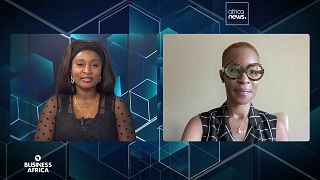
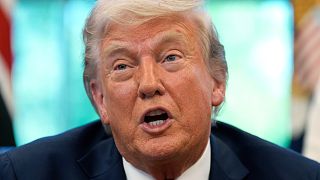
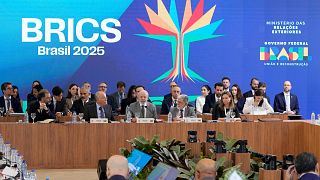
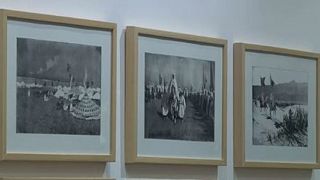
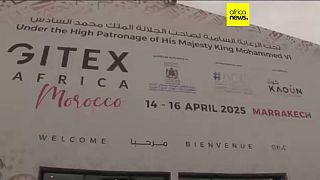
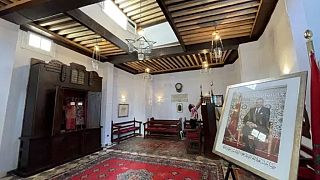



Go to video
Exhibition in Morocco explores a world of color
Go to video
The EU moves to fast-track asylum claims by migrants from 7 countries to speed deportation
00:50
Spain: human trafficking ring smuggling moroccans into europe dismantled
Go to video
France and Algeria resume diplomatic talks aimed at mending rift
Go to video
Brazil's president criticises Trump's decision to impose car import tariffs
Go to video
Ghana and Morocco move to scrap visa requirements